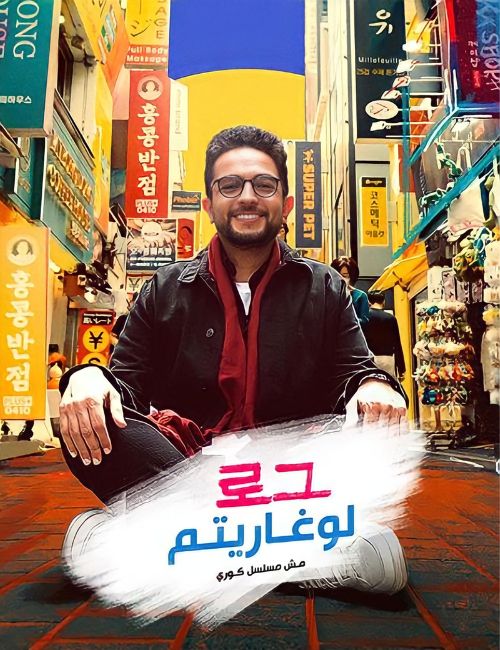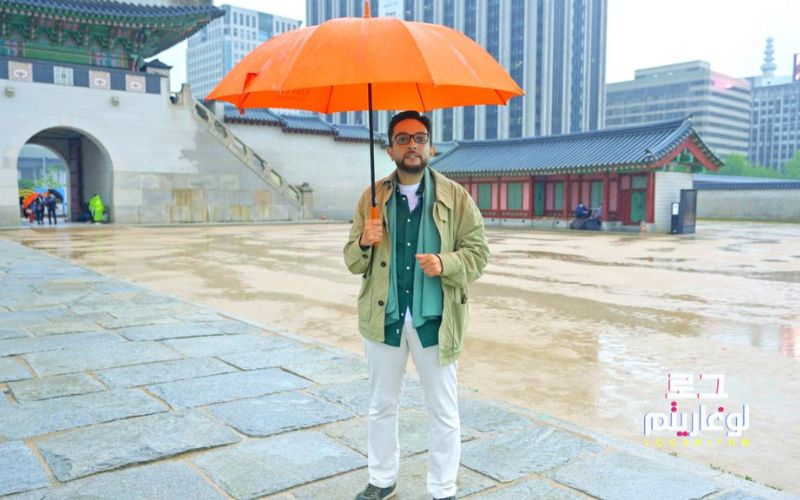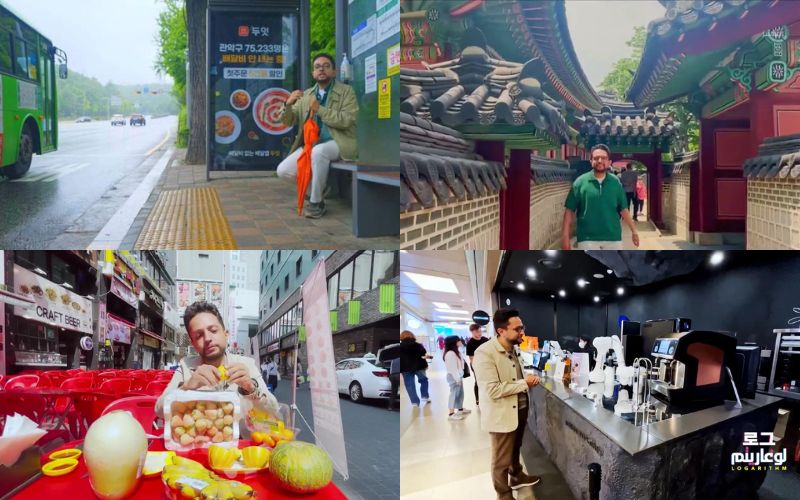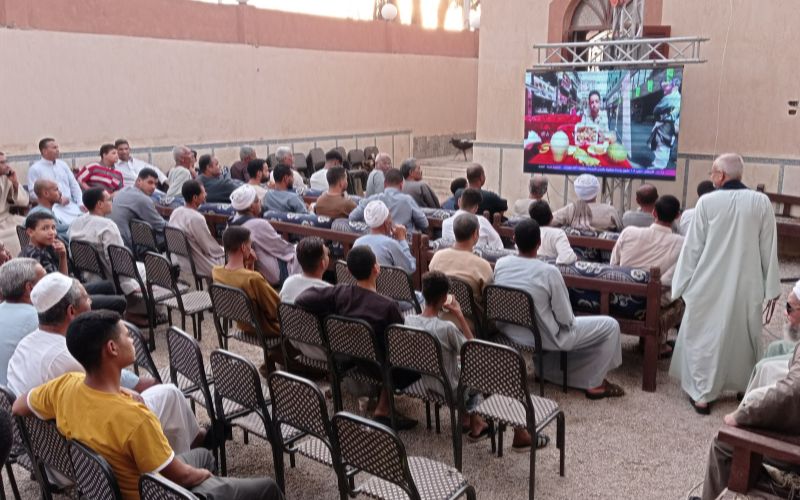- 한국어
- English
- 日本語
- 中文
- العربية
- Español
- Français
- Deutsch
- Pусский
- Tiếng Việt
- Indonesian
By Honorary Reporter Alaa Atef Ebada from Egypt
Photo by = Ahmed Fayek, Watch It official Facebook page
Show host and journalist Ahmed Fayek (from Egypt) starred in the Egyptian TV program “Korea Logarithm” which explores life in Korea in detail. The show set a precedent by topping search engines after the first episode was broadcast on July 14, which rarely happens for a documentary. During an audio interview on July 16, Fayek discussed his experience of being the host of this popular show.

A promotional poster for “Korean Logarithm” (Ahmed Fayek)
Briefly introduce the program “Korean Logarithm”
“Korean Logarithm” is a program that provides rich information about Korea and its culture. It focuses on building bridges between Korea and Egyptians, allowing them to know about Korean culture, the people and their traditions. It also introduces the personality traits of successful Egyptians and Arabs as well as Koreans. The filming of the program took 22 days at the beginning of May, during my first visit to Korea.
Why was Korea selected for the program?
Hallyu has successfully attracted the young generation in Egypt and in the Arab world, through its influential products, dramas and music. A historical relationship between Egypt and Korea also stands with love and respect, as the historically unforgettable Cairo Declaration was declared in Egypt. So the reason Korea was selected for the program came from my attempt to introduce Korean culture to Egyptians.
What is the ultimate goal of the program?
With an innovative format and content, we seek to provide useful information on Korean culture in an entertaining way, inviting viewers to visit Korea through the screen and have an easy approach to its culture. I deliberately made all my first impressions in front of the camera so that I would be able to capture real feelings.

The opening of the first episode of the program at Gyeongbokgung Palace (Ahmed Fayek)
How do you feel about the fact that the program is so popular?
I am happy that our program was well received in Egypt as well as other Middle Eastern countries. The show started trending on Facebook after just the first episode was released.
Has there been a change in your perception of Korea after making the documentary?
My perception of Korea didn’t change because I didn’t have any particular concept at all to begin with, but I made new discoveries about the country. All I knew was that East Asian countries tend to be more disciplined, strict with time management, life and work. When I came to Korea, I found that Korean people were very disciplined and organized. They are able to balance the rigor and competition at work or at school with accessible sources of entertainment.

The top pictures show bus stops in Korea and a visit to the traditional village of Bukchon; while the bottom ones show the experience of unfamiliar Korean fruits in Egypt and ordering coffee from a robot (Ahmed Fayek / screenshots from the official DMC YouTube channel)
What caught your attention during your first visit to Korea?
I noticed that Korea is a place of cheerful colors. As soon as you step out onto the streets, you find that they are consistent in colors, and the people are elegant in manner, and quiet and reserved. Most of those we met were very welcoming and open. In addition, Korea is a country that is very considerate to non-Koreans. Most of the street signs include English, and there are easy-to-use apps for most tasks that comes with an English option. Even if I didn’t speak much Korean, I had no difficulty using public transport or making reservations for places.
Do you have a favorite K-thing?
I liked Korea’s fashion the most. It is both elegant and comfortable. I even bought a lot of clothes during my stay because I was so impressed with the beauty, comfort and elegance. I also love Korean seafood -- it was my favorite kind of food to have there. And I liked Korea’s baked goods and coffee. I think the coffee there is better than that in Europe or the United States.

People from the village of Al-Qalmina in Qena Governorate, Upper Egypt, gathered in Waqf Center to watch the first episode of "Korean Logarithm" (Ahmed Fayek)
What are some similarities between Egypt and Korea?
The first similarity I noticed is the spirit of the country and its night life. Seoul is almost like Cairo at night, as they are both cities that never sleep. In some episodes of the documentary, I observed other similarities such as crowded streets, popular restaurants and street carts. I visited Myeongdong Square, which is very similar to Alfi Square in Egypt.
There is little difference between the culture of Egyptian and Korean society in terms of social relations and traditions because they are both Eastern countries. We also have similar morals and principles such as respecting the elderly. Despite the geographical distance, Korea and Egypt are quite compatible.
msjeon22@korea.kr
*This article is written by a Korea.net Honorary Reporter. Our group of Honorary Reporters are from all around the world, and they share with Korea.net their love and passion for all things Korean.